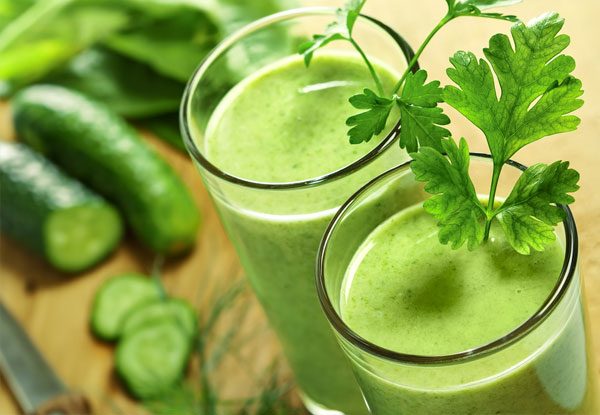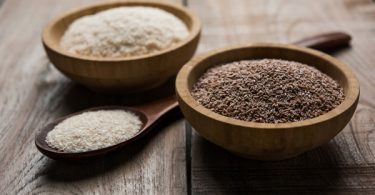There are a lot of essential oils available in the market. Some of them have become quite popular because of the number of people using them. Health care professionals, however, haven’t given essential oils their complete stamp of approval and have therefore not yet established any therapeutic claims. There’s no harm in using them, though, if you’ve tried the tests and it’s proven that you don’t have any allergies to these oils.
Here are some of the most effective and commonly used essential oils.

By Nishihama / shutterstock.com
Bergamot (Citrus bergamia)
This oil is one of the favorites to be used in aromatherapy. It makes the user happier and more relaxed, and also helps cure certain skin ailments.
Origin
Bergamot oil comes from the Bergamot oranges that grow mainly in Calabria in
Southern Italy. The fruit is described as a cross between a grapefruit and an orange.
It is pear-shaped and it grows on small trees with smooth leaves and star-shaped flowers.
Extraction Method
The oil is taken from the fruit’s peel and used for various purposes. The oil is expressed from both the ripe and unripe bergamot fruit to extract the essential oil, which will yield about 0.5%.
Oil Properties
The bergamot oil has more of the citrus scent, but it is still sweet and fruity. It also possesses a warm and spicy floral quality and is quite reminiscent of lavender oil.
Its color is somehow green to greenish-yellow, and the oil contains a watery viscosity. The oil is also used to flavor the famous Earl Grey tea.
Therapeutic Properties
Bergamot balances and refreshes the emotions, and this oil is extremely useful when dealing with anxiety and depression. Bergamot can also be used to treat the mouth’s viral and bacterial infections, which also include nasal mucus.
Bergamot oil can also be utilized to stimulate blood circulation while calming and relaxing the nervous system at the same time. It has slightly diuretic and anti-inflammatory properties which make it a good treatment for varicose veins. With its anti-spasmodic properties, bergamot is also good for relieving lower back pain and muscle cramps.
Allergy-related conditions can also be treated by bergamot oil’s general tonifying properties – it helps relieve the pain, swelling, and itchiness brought about by insect stings and bites, and at the same time, it repels insects too. Bergamot is also handy in giving first aid treatments to minor wounds and cuts.
Precautions
No matter how beneficial bergamot oil might be, it should still not be used on children as there have been reported side effects if they use it. Some reported effects are convulsion and worse, even death.
Clary Sage (Salvia sclarea)
Clary sage may not be cheap, but having this kind of oil will give you a lot of benefits. It does not only ease depression and burnouts, but it also relieves congested complexions and the difficulties associated with the female anatomy.
Origin
The clary sage essential oil comes from a stout biennial plant that grows up to three feet tall. It has large, hairy leaves, and its long, thin stem bears white and blue flowers.
The plant was a highly respected medicine known as “Oculus Christi” (“Eye of Christ”) in the Middle Ages. It is used in Jamaica by the local people to cool, clean ulcers, and treat eye inflammations.
Extraction Method
Steam distillation is used to extract the clary sage oil from the plants’ leaves and the flowering tops.
Oil Properties
The clary sage essential oil appears somewhat clear to pale yellow and gives off a bright, sweet, and nutty fragrance which is to some extent herbaceous. It also has a subtle fruity note.
Therapeutic Properties
Clary sage can calm the nervous system, especially in cases of stress, depression, insomnia, and deep-seated tension. Women, in particular, can benefit from clary sage as it helps the body endure those painful and scanty menstruation periods. It also facilitates less painful childbirth by relaxation during labor.
Precautions
Clary sage oil can exaggerate alcohol effects so it should be avoided if one consumes alcohol regularly. It’s non-sensitizing and also non-toxic, but it can trigger a headache when taken in large doses. Pregnant women should avoid clary sage oil at least until actual childbirth.
Jasmine [Jasminum Grandiflora (synonym officinale)]
Jasmine oil may be expensive, but it makes you smell and feel good. It can deeply relax you and take you out of depression.
Origin
The Jasmine plant is a fragile climbing shrub. It can grow up to 33 feet in length.
The shrub has dark green leaves as well as star-shaped flowers that are small and white. The flowers are ideally picked at night when their aroma is at their most intense.
Extraction method
Jasmine oil first starts as a “concrete” on which it’s made by solvent extraction.
From the concrete, an “absolute” is then obtained by separation with alcohol. The oil is afterward taken from the absolute through steam distillation.
Oil properties
The Jasmine essential oil has a warm, sweet, and exotic floral smell.
Therapeutic properties
Jasmine is an important cure in cases of severe depression.
Precautions
Consult a doctor or a reliable health care practitioner prior to use especially if you’re pregnant, nursing, or have a medical condition that needs certain medications. Check for allergic reactions before applications.
Lavender (Lavandula angustifolia)
Lavender is said to be the most versatile and truly all-purpose essential oil available. Not only does it have great qualities, but it also smells great. It calms and it heals, and its other side includes enhancing the flavor of food.
Origin
Lavender grows on an evergreen woody shrub that’s about 3 feet high. It has narrow linear leaves that are gray-green in color, and the plant grows the prettiest purple-blue flowers. The name is taken from the Latin word “lavra” (“to wash”). The name may have been taken from the Ancient Romans given that they used it regularly in their bath routines.
Extraction method
Steam distillation is used to extract the oils from the flowering tops; the process yields about 1.4 to 1.6%.
Oil properties
Lavender oil possesses a light fresh aroma. It’s watery in viscosity and is clear in color.
Therapeutic properties
Lavender oil can soothe and calm the nerves. It can relieve tension, panic, depression, nervous exhaustion, and hysteria in general. It’s also effective for insomnia, headaches, and migraines.
Lavender also has anti-bacterial and antiseptic properties. Lavender can cool the pain brought about by burns and stings, and can also stimulate blood flow to the areas affected by burns and stings to promote healing.
Precautions
It has been said that lavender oil is one of the harmless essential oils. However, don’t continue using it if you start to show signs of allergic reactions.
Lemon (Citrus limon)
Lemon oils have powerful and traditional lemon fragrances that can both uplift and energize. Lemon oil can be best used in eliminating the stench of smoke left behind by cigarette users or other unpleasant scents.
Origin
Lemon comes from an evergreen tree that can grow up to 20 feet high. The plant has oval leaves which are dark green in color, and it bears highly perfumed pink and/or white flowers.
The lemon fruit is a good source of vitamins A, B, and C. British Royal Navy sailors received an ounce of lemon a day to lessen risks of scurvy and other vitamin deficiencies while they are out at sea.
Extraction method
“Cold expression” is the method used to extract lemon essential oils from the fruit peels.
Oil properties
The lemon essential oil has a sharp and fresh smell. It’s pale greenish-yellow and is watery in thickness. The smell is somehow similar to that of the fruit, but the oil’s scent is richer and more concentrated.
Lemon oil ideally needs to be stored for about 8 to 10 months if used for aromatherapy purposes. If it’s stored past this period, the oil can still be used though only for fragrance purposes such as vapor therapy.
Therapeutic properties
Lemon oil can be very beneficial to the circulatory system as it aids in the body’s blood flow. It lowers blood pressure and it helps stop nosebleeding. It can also help lower high body temperature brought about by fever and help relieve throat infections, asthma, bronchitis, and flu.4
Lemon can also boost the immune system and cleanse the body. It can improve the digestive system’s functions by combating conditions such as dyspepsia, constipation, and cellulite.
For arthritis and rheumatism, lemon oil can also help. Headaches and migraines can also be soothed, and acne can be cleared.
Precautions
Lemon oil should be diluted first before application on sensitive areas such as the face and neck. Dilution is also advised for both topical and internal use.
[adinserter block=”7″]
[adinserter block=”9″]
[adinserter block=”3″]







Leave a Comment